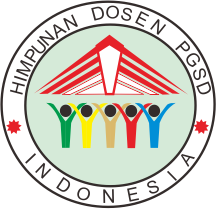Development of innovative audiobooks to optimize e-learning
DOI:
https://doi.org/10.30595/dinamika.v15i2.18717Keywords:
e-learning, audiobook, innovative digital book, usefulness, ease of useAbstract
E-learning requires innovative teaching materials to improve the quality of learning. But currently, e-learning cannot increase motivation and learning outcomes. Materials and media should adapt to the learning needs of e-learning. This study aimed to develop and test the effectiveness of innovative audiobooks for practical computers. The research method used is research and development. The stages of this model are analysis, design, development, implementation, and evaluation. Instruments used are interviews, observation, validation, questionnaires, and tests. Then, descriptive statistical analysis was used. The research subjects are lecturers and students. The number of respondents was as many as 115 people. The results of the analysis showed that the use of audiobooks could improve students' understanding and skills. Audiobook is an alternative e-learning media. Audiobooks have been designed in a flexible and user-friendly. Audiobooks are equipped with learning sounds and videos that users need. So that users can understand and practice it independently. Users can easily learn and operate it. Based on the evaluation results, it is known that the user has perceived usefulness and ease of use. Users feel satisfied and have a positive attitude. This attitude will foster interest in and actual use of audiobooks. Furthermore, innovative digital books can be developed for other subjects. Students can use flexible audiobooks be outonomous to improve their understanding and skills.
References
Ahmad, Pervaiz & Brogan, Mark. (2016). E-book user behavior in academic libraries: The role of user agents in perception and satisfaction. Malaysian J. Lib. Info. Sci., 21(3), 95-109
Al-Salman, S. and Haider, A.S. (2021). Jordanian University students’ views on emergency online learning during covid-19. Online Learning Journal, 25(1): 286-302
Ames, A., Smith, K. L., Sanchez, E. R. H., Pyle, L., Ball, T., & Hawk, W. J. (2017). Impact and persistence of ethical reasoning education on student learning: results from a module-based ethical reasoning educational program. International Journal Ethics and Education, 2(1): 77–96
Angriani, A.D. dan Kusumayanti, A.N.Y. (2020). Pengembangan media pembelajaran digital book pada materi aljabar. Delta-Pi: Jurnal Matematika Dan Pendidikan Matematika, 9(2): 13–30
Arsanti, M. (2018). Pengembangan bahan ajar mata kuliah penulisan kreatif bermuatan nilai-nilai pendidikan karakter religius bagi mahasiswa Prodi PBSI, FKIP, Unissula. Jurnal Kredo, 1(2): 71–90
Bustomi, A. (2020). Implikasi covid-19 terhadap pembelajaran di perguruan tinggi. Jurnal Tawadhu, 4(1): 1007–1017
Bele, F., dan Made, D. (2018). Inovasi pembelajaran elektronik dan tantangan guru abad 21. Jurnal Penelitian dan Pengkajian Ilmu, 2(1): 10–18
Davis, F. D. 1989. Perceived usefulness, perceived ease of use, and user acceptance of information technology. MIS Quarterly. 13(3): 319‐39
DeLone, W.H. dan McLean, Ephraim R. 2003. The DeLone and McLean model of information systems success: a ten-year update. Journal of Management Information Systems. 19(4): 9-30
Fadli, F., Astuti, S. I. D., and Rukiyati, R. (2020). Techno-resilience for teachers: Concepts and action. TEM Journal, 9(2): 820–825
Ferguson, Christine L. Textbooks in academic libraries. (2016). Serials Review, 42(3), 252-258. doi: 10.1080/00987913.2016.1207480
Firmansyah. (2021). Motivasi belajar dan respon siswa terhadap online learning sebagai strategi pembelajaran di masa pandemi covid-19. Edukatif: Jurnal Ilmu Pendidikan, 3(2): 589 - 597
Fitriati, A., Tubastuvi, N., Pratama, B.C., and Anggoro, S. (2020). Study of Delone-Mclean information system success model: the relationship between system quality and information quality. Journal of Theoretical and Applied Information Technology, 98(03): 477-487. http://www.jatit.org/volumes/Vol98 No3/11Vol98No3.pdf
He, W., Xu, G., and Kruck, S. E. (2019). Online IS education for the 21st century. J. Inform. Syst. Educ. 25, 101–105
Herliandry, L. D., dan Suban, M. E. (2020). Pembelajaran pada masa pandemi covid-19. Jurnal Teknologi Pendidikan, 22(1): 65–70
Lipscombe, K., Buckley-Walker, K., and McNamara, P. (2020). Understanding collaborative teacher teams as open systems for professional development. Professional Development and Education, 46(3): 373–390
Nengrum, T.A., Solong, N.P. dan Iman, M.N. (2021). Kelebihan dan kekurangan pembelajaran luring dan daring dalam pencapaian kompetensi dasar kurikulum Bahasa Arab di Madrasah Ibtidaiyah 2 Kabupaten Gorontalo. Jurnal Pendidikan, Vol. 30(1): 1-12
Sousa, M.J.; Cruz, R.; Martins, J.M. (2017) Digital Learning Methodologies and Tools-A Literature Review. In Proceedings of the Edulearn17 Proceedings, Barcelona, Spain, 3–5 July 2017: 5185–5192.
Sousa, M.J.; Rocha, Á. (2018). Corporate Digital Learning-Proposal of Learning Analytics Model. In Trends and Advances in Information Systems and Technologies; WorldCIST’18 2018, Advances in Intelligent Systems and Computing; Rocha, Á., Adeli, H., Reis, L.P., Costanzo, S., Eds.; Springer: Cham, Switzerland, 2018; Volume 745
Tri-Agif, I.; Noorhidawati, A. & Ghalebandi, S. Ghazal. (2016). Continuance intention of using e-books among higher education students, Malaysian J. Lib. Info. Sc., 21(1), 19-33. doi: 10.22452/mjlis.vol21no1.2
Tri, P., dan Karya, M. (2020). Analisa minat membaca antara e-book dengan buku cetak mengunakan metode observasi pada Politeknik Tri Mitra Karya Mandiri. Jurnal IKRA-ITH Ekonomika, 4(2):158–163
Winatha, K. R. (2018). Pengembangan e-modul interaktif berbasis proyek mata pelajaran Simulasi Digital. Jurnal Pendidikan Teknologi Dan Kejuruan, 15(2). https://doi.org/10.23887/jptk-undiksha.v15i2.14021Harasim L. (1990), Online education: perspectives on a new-environments, New York, Praeger
Downloads
Published
How to Cite
Issue
Section
License
Copyright (c) 2023 Azmi Fitriati, Annisa Ilma Hartikasari, Tiara Pandansari, Rezky Pramurinda, Ilham Nuryana

This work is licensed under a Creative Commons Attribution 4.0 International License.
Authors who publish with this journal agree to the following terms:
Authors retain copyright and grant the journal right of first publication with the work simultaneously licensed under a Creative Commons Attribution License that allows others to share the work with an acknowledgement of the work's authorship and initial publication in this journal.
Authors are able to enter into separate, additional contractual arrangements for the non-exclusive distribution of the journal's published version of the work (e.g., post it to an institutional repository or publish it in a book), with an acknowledgement of its initial publication in this journal.
Authors are permitted and encouraged to post their work online (e.g., in institutional repositories or on their website) prior to and during the submission process, as it can lead to productive exchanges, as well as earlier and greater citation of published work (See The Effect of Open Access).

Dinamika Jurnal Ilmiah Pendidikan Dasar is licensed under a Creative Commons Attribution 4.0 International License.













